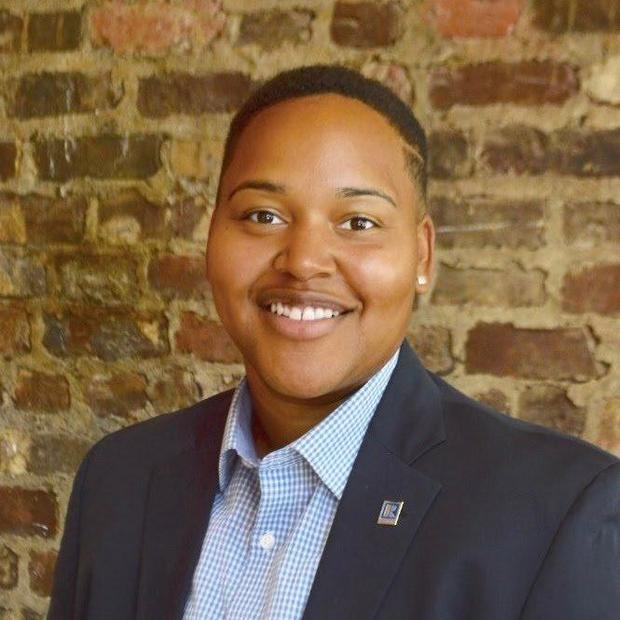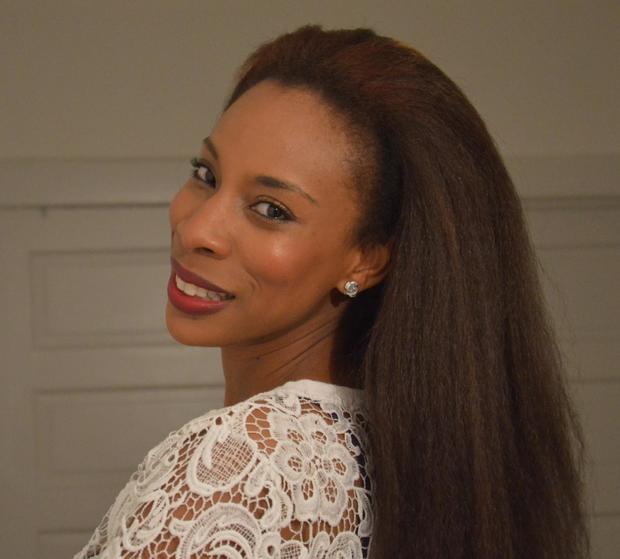saturn7
Politics is an EXCHANGE!!!
Up to 90% of minority and women owners shut out of Paycheck Protection Program, experts fear
Up to 90% of minority and women owners shut out of Paycheck Protection Program, experts fear
Flaws in the Paycheck Protection Program are hindering small businesses owned by minorities and by women from securing federal coronavirus relief, according to lending experts and interviews with numerous owners.
Many diverse business owners applied for loans through the Small Business Administration program, only to come up empty because they either didn't qualify or the funds had been exhausted by the time their applications were processed.
"Based on how the program is structured, we estimate that upwards of 90% of businesses owned by people of color have been, or will likely be, shut out of the Paycheck Protection Program," said Ashley Harrington, director of federal advocacy and senior council for the Center for Responsible Lending, a non-profit group that combats abusive lending practices and recently examined the loan program's parameters.
"Roughly 95% of Black-owned businesses, 91% of Latino-owned businesses, 91% of Native Hawaiian or Pacific Islander-owned businesses, and 75% of Asian-owned businesses stand close to no chance of receiving a PPP loan through a mainstream bank or credit union," the center warned on April 6 as the Paycheck Protection Program, or the PPP, was starting to take applications.
Businesses quickly depleted the first round of funding for the PPP within two weeks of its launch. Congress is expected to vote this week to replenish the $349 billion relief fund with an additional $310 billion for small business loans.
One obstacle for minority business owners is that many banks participating in the low-interest, forgivable loan program are only issuing loans to existing clients to speed up the approval process that grants access to the money.
Businesses owned by people of color are less likely to have commercial banking relationships, Harrington said.
"[If] participating banks are requiring that applicants have a credit relationship — to already have some type of loan out — that already cuts many of these businesses out," she added.
Major banks that offered the SBA-backed loans, including Bank of America, JPMorgan Chase and Wells Fargo, also prioritized larger loan applications in order to maximize loan-origination fees and their own profits, according to several class-action lawsuits representing small businesses still waiting for their approved funding.
That alleged prioritizing presents another hurdle for smaller minority- and women-owned businesses.
On average, minority and women-owned businesses have 30% fewer employees compared to male- or white-owned businesses. Their average sales are about 50% to 90% of their counterparts', according to an analysis by the Brookings Institution, a liberal-leaning think tank. That means the value of the loans they were seeking — which are based on a businesses's average monthly payroll — would have been smaller.
Natasha Crosby, a Richmond, Virginia, realtor who is an independent contractor, said her midsize, commercial bank only made its PPP loan application available on April 16 — the same day funds ran out. Other banks in her area required an existing lending relationship with them, effectively cutting her out of the program.
"I wasn't even able to apply and be in a position to be denied. I was essentially denied from the onset because I had been banking with the wrong bank," Crosby told CBS MoneyWatch.

Virginia realtor Natasha Crosby was ready to apply for a Paycheck Protection loan, but said her local bank didn't start accepting applications until the federal funds had already run dry.
Crosby, who is also the president of the Richmond's LGBTQ Chamber of Commerce, said that people "who weren't previously banking with an SBA-approved lender were put at a great disadvantage because you had to find someone willing to take on a new business customer — it affected who received the money."
Brookings Institution research also suggests that the U.S. Small Business Administration-backed loan program favored larger, and mostly white-owned, small businesses.
"In order to achieve scale and rapidity, they did it through lenders, and lenders rationally said, 'We'll start with our existing customers first because we have all of their info,' and those tended to be larger small businesses," said Joseph Parilla, fellow at the Metropolitan Policy Program at Brookings. "It stands to reason that the way the PPP was structured, approved loans tended to skew toward white-owned small businesses."
The same research showss that female-owned businesses, or businesses equally owned by a man and woman, face the highest degree of immediate and long-term risk amid the coronavirus crisis, because they occupy industries in which social distancing in't possible.
"We would expect that restaurants, retail, gyms, salons and all these things that require social interaction would be in the immediate risk category, and women-owned businesses are more represented in that segment," Parilla said.
Maryland food hall and bakery owner April Richardson was disappointed but not surprised, that National Bank rejected her application for a $23,000 loan through the program. "I never thought I'd get anything because I am a minority and a woman and own a micro-small business," she said.

Bakery owner April Richardson was rejected for a $23,000 loan through the federal Paycheck Protection Program that she planned to use to keep her workers on the payroll.
Richardson said she was planning to use the loan to put her seven bakery employees back to work and fulfill an 11,000-cake order from Safeway, one of her grocery clients. Now she doesn't know how she'll stay in business.
"We were disenfranchised yet again," Richardson said. "But we will figure out a way to do something even if it's not an 11,000 cake order."
Up to 90% of minority and women owners shut out of Paycheck Protection Program, experts fear
Flaws in the Paycheck Protection Program are hindering small businesses owned by minorities and by women from securing federal coronavirus relief, according to lending experts and interviews with numerous owners.
Many diverse business owners applied for loans through the Small Business Administration program, only to come up empty because they either didn't qualify or the funds had been exhausted by the time their applications were processed.
"Based on how the program is structured, we estimate that upwards of 90% of businesses owned by people of color have been, or will likely be, shut out of the Paycheck Protection Program," said Ashley Harrington, director of federal advocacy and senior council for the Center for Responsible Lending, a non-profit group that combats abusive lending practices and recently examined the loan program's parameters.
"Roughly 95% of Black-owned businesses, 91% of Latino-owned businesses, 91% of Native Hawaiian or Pacific Islander-owned businesses, and 75% of Asian-owned businesses stand close to no chance of receiving a PPP loan through a mainstream bank or credit union," the center warned on April 6 as the Paycheck Protection Program, or the PPP, was starting to take applications.
Businesses quickly depleted the first round of funding for the PPP within two weeks of its launch. Congress is expected to vote this week to replenish the $349 billion relief fund with an additional $310 billion for small business loans.
One obstacle for minority business owners is that many banks participating in the low-interest, forgivable loan program are only issuing loans to existing clients to speed up the approval process that grants access to the money.
Businesses owned by people of color are less likely to have commercial banking relationships, Harrington said.
"[If] participating banks are requiring that applicants have a credit relationship — to already have some type of loan out — that already cuts many of these businesses out," she added.
Major banks that offered the SBA-backed loans, including Bank of America, JPMorgan Chase and Wells Fargo, also prioritized larger loan applications in order to maximize loan-origination fees and their own profits, according to several class-action lawsuits representing small businesses still waiting for their approved funding.
That alleged prioritizing presents another hurdle for smaller minority- and women-owned businesses.
On average, minority and women-owned businesses have 30% fewer employees compared to male- or white-owned businesses. Their average sales are about 50% to 90% of their counterparts', according to an analysis by the Brookings Institution, a liberal-leaning think tank. That means the value of the loans they were seeking — which are based on a businesses's average monthly payroll — would have been smaller.
Natasha Crosby, a Richmond, Virginia, realtor who is an independent contractor, said her midsize, commercial bank only made its PPP loan application available on April 16 — the same day funds ran out. Other banks in her area required an existing lending relationship with them, effectively cutting her out of the program.
"I wasn't even able to apply and be in a position to be denied. I was essentially denied from the onset because I had been banking with the wrong bank," Crosby told CBS MoneyWatch.

Virginia realtor Natasha Crosby was ready to apply for a Paycheck Protection loan, but said her local bank didn't start accepting applications until the federal funds had already run dry.
Crosby, who is also the president of the Richmond's LGBTQ Chamber of Commerce, said that people "who weren't previously banking with an SBA-approved lender were put at a great disadvantage because you had to find someone willing to take on a new business customer — it affected who received the money."
Brookings Institution research also suggests that the U.S. Small Business Administration-backed loan program favored larger, and mostly white-owned, small businesses.
"In order to achieve scale and rapidity, they did it through lenders, and lenders rationally said, 'We'll start with our existing customers first because we have all of their info,' and those tended to be larger small businesses," said Joseph Parilla, fellow at the Metropolitan Policy Program at Brookings. "It stands to reason that the way the PPP was structured, approved loans tended to skew toward white-owned small businesses."
The same research showss that female-owned businesses, or businesses equally owned by a man and woman, face the highest degree of immediate and long-term risk amid the coronavirus crisis, because they occupy industries in which social distancing in't possible.
"We would expect that restaurants, retail, gyms, salons and all these things that require social interaction would be in the immediate risk category, and women-owned businesses are more represented in that segment," Parilla said.
Maryland food hall and bakery owner April Richardson was disappointed but not surprised, that National Bank rejected her application for a $23,000 loan through the program. "I never thought I'd get anything because I am a minority and a woman and own a micro-small business," she said.

Bakery owner April Richardson was rejected for a $23,000 loan through the federal Paycheck Protection Program that she planned to use to keep her workers on the payroll.
Richardson said she was planning to use the loan to put her seven bakery employees back to work and fulfill an 11,000-cake order from Safeway, one of her grocery clients. Now she doesn't know how she'll stay in business.
"We were disenfranchised yet again," Richardson said. "But we will figure out a way to do something even if it's not an 11,000 cake order."